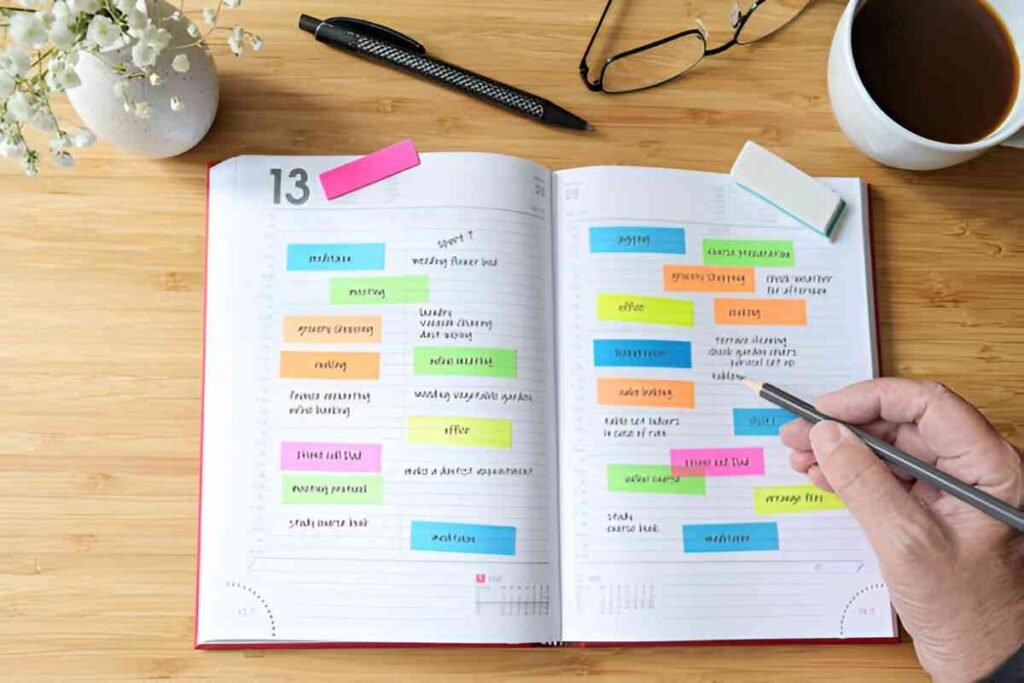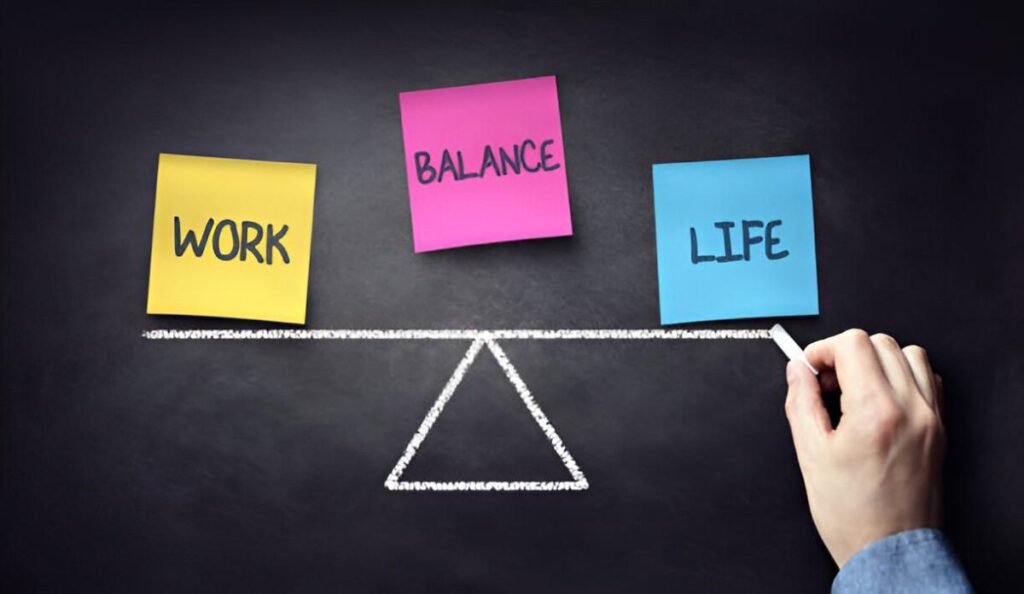Navigating job interviews can be challenging, particularly when discussing sensitive subjects like work-life balance. Asking about this aspect could mean the difference between flourishing in a new position or burning out and here is an extensive guide on how to address work-life balance during interviews while gathering the required info without jeopardizing your chances.
Table of Contents
Understanding Work-Life Balance
· What is Work-Life Balance?
A work-life balance refers to an equilibrium between professional responsibilities and personal life. Achieving this equilibrium will strengthen overall well-being, productivity, and job satisfaction – qualities essential to living an enriching life.
· Why is Work-Life Balance Important?
Work-life balance is integral for maintaining mental and physical wellness, strengthening relationships, and optimizing job performance. Achieve balance will prevent burnout, reduce stress, and foster job satisfaction and loyalty – essential factors not just in maintaining top talent but in creating productive workplace environments as well.
· The Role of Employers in Work-Life Balance
Employers play an instrumental role in supporting work-life balance. This may mean providing flexible schedules, remote work options, supportive policies, and creating an atmosphere that values personal time off. Companies that prioritize work-life balance tend to attract happier, more productive employees with reduced turnover rates.
Preparing for the Interview
· Researching the Company
Before your interview, it’s essential to conduct thorough research on the company and its policies/culture regarding work-life balance. Consult reviews on Glassdoor or social media channels like LinkedIn to gather an impression of whether they value work-life balance. Also, read any blog or articles published about them related to this area for insight. This research can indicate as to which measures are put into effect at that company.
· Identifying Your Priorities
Prioritize Your Needs Define what work-life balance means to you – do you require flexible hours, remote work options, or specific amounts of vacation leave? Being clear on this will allow you to more accurately formulate questions and assess if a company can fulfill them.
· Crafting Your Questions
Before attending your interview, create a list of open-ended questions designed to elicit detailed responses and offer insight into how the company approaches work-life balance. Questions like, “Can You Explain Their Approach To Work-Life Balance? or What Flexible Working Arrangements Exist” are good starting points.
During the Interview
· Timing Your Questions
Timing is of utmost importance when asking about work-life balance during an interview process. For optimal results, wait to bring this subject up until later stages, after you’ve established your qualifications for the role and shown interest in the company – otherwise doing so early might give the impression that time off is more of an interest than working itself!
· Framing Your Questions Positively
Frame your inquiries so they show how committed and invested you are in being productive and successful within your role, such as I’m committed to producing high-quality work; can you explain the support systems available for maintaining a healthy work-life balance?” This way of questioning shows your dedication while at the same time addressing concerns directly.
· Reading Between the Lines
Pay close attention to an interviewer’s responses and body language during an interview; any signs that they seem uncomfortable, vague answers, or provide vague responses could indicate work/life balance isn’t an important priority within that company; conversely, detailed and enthusiastic answers indicate support within an environment.
Asking the Right Questions
· Questions to Assess Work-Life Balance
Questioning Work-Life Balance Here are a few questions you can pose to assess an employer’s commitment to work-life balance:
· Company Policies and Culture
“Can you describe the company’s approach to work-life balance?”
“What policies are in place to support work-life balance for employees?”
“How does the company measure and ensure employee well-being?”
· Work Schedule and Flexibility
“What kind of flexible work arrangements are available?”
“Is remote work an option, and if so, how is it managed?”
“How are overtime and after-hours work handled?”
· Support Systems
“What resources are available for employees to manage stress and maintain work-life balance?”
“Does the company offer any wellness programs or initiatives?”
“How does the company support employees with family responsibilities?”
· Company Culture
“Can you give examples of how the company supports work-life balance in practice?”
“How do managers ensure their teams maintain a healthy work-life balance?”
“Can you describe the company’s approach to vacations and time off?”
· Interpreting Responses
Your answers can offer invaluable insight into a company’s culture. Look out for specific examples and policies rather than vague assurances; any organization that truly values work-life balance will have actionable measures put in place that reflect it.
Post-Interview Reflections
· Evaluating the Company’s Commitment
After your interview, take some time to assess the company’s commitment. Consider how closely its policies align with your needs and whether interviewers seemed genuine in supporting work-life balance if offered employment. Your reflection can help inform any subsequent decisions should an offer come your way.
· Compare Your Options
As you interview multiple companies, carefully assess each’s approach to work-life balance. Which provides the greatest support for you and what factors play a part? For example: flexibility, support systems, and overall company culture all may play into this decision-making process.
· Making Your Decision
Your final decision should take into account several aspects, including your role itself, company work-life policies, and whether or not the culture suits your preferences. Trust your instincts to select an option that supports both your well-being and career goals best.
Real-World Examples
· Companies with Excellent Work-Life Balance
Certain organizations are widely respected for their dedication to work-life balance. Google stands out as being especially dedicated, offering flexible hours, on-site wellness programs, and generous parental leave policies; Salesforce similarly has extensive wellness offerings such as mental health support as well as flexible work options for its employees.
· Employee Testimonials
Reading employee testimonials is an invaluable source of additional insight. Look to websites such as Glassdoor or Indeed where employees share their work-life experiences at various companies – these firsthand accounts will give a more accurate representation of what to expect when joining that workplace.
Conclusion
Work-Life Balance
Striking the proper work/life balance is critical to overall well-being and job satisfaction, making it imperative that this topic be raised during job interviews to make sure any company will accommodate your requirements.
Empower Yourself in the Interview Process
By crafting thoughtful questions, timing them correctly, and carefully considering each response during an interview process, you can increase your power in making informed decisions regarding potential employers. Keep in mind that an interview is two-sided: It should serve both to find you your perfect position as well as showcase yourself as suitable.
Final Thoughts
Don’t be nervous about bringing up work-life balance during an interview – it is an essential aspect of job satisfaction and overall well-being, so by approaching this topic in an intelligent yet confident manner you may just find a position that allows both aspects of your life to flourish together!
· Additional Resources
For further reading on this topic, consider the following resources:
Books: “The Work-Life Balance Myth” by David J. McNeff, “Overwhelmed: Work, Love, and Play When No One Has the Time” by Brigid Schulte.
Articles: “The Benefits of Flexible Working Arrangements” on Harvard Business Review, “How to Achieve Work-Life Balance” on Forbes.
Websites: Glassdoor, Indeed, and LinkedIn for company reviews and employee testimonials.
By taking these steps, you can ensure that your next job offers the balance you need to succeed both professionally and personally.





